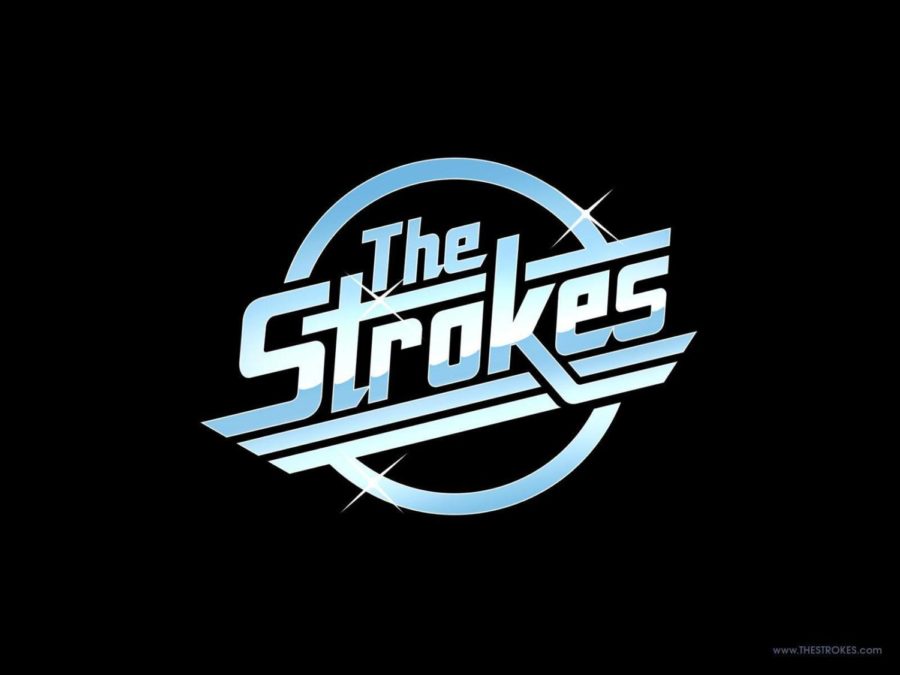‘Comedown Machine’ holds a slightly stronger air of experimentation than first album
The Strokes’ latest LP surfaces amid third alternative music wave
The smell of graphite is rank in my nostrils and a look of premature depletion is already staining my face. School is back, and with school also comes a new league of music reviews. This week I will be visiting The Strokes’ musically sleek and thematically indulgent latest LP, Comedown Machine.
Perhaps one of the most steadfast bands to surface amid the third wave of alternative music, The Strokes have also shown their incredible ability to age well over their 18-year-career. The band’s first outing Is This It shot onto cult lists and car radios before it could effectively hit the ground running, and since then The Strokes haven’t really done anything to rebuke that reputation.
While Comedown Machine is topically similar with the band’s past albums, Is This It in particular, the former doesn’t shy away from a more mature lyrical ethos. I can’t help but think that there is a thematic duality between the two.
The album’s take on youth and urban living airs on the side of nostalgia and regret, leaving the audience with a vision of Casablanca turned haggard and old to compliment his scratchy croon.
This album is far more tonally based in comparison to their previous work, and the production holds a slightly stronger air of experimentation.
The albums first track and promotional single, “Tap Out,” kicks off with an opening musical sigil comparable to the beginning of Is This It. The song holds a kind of constant uneasy march. Despite this, it manages to perpetuate a sort of subtle joyful drive. A few songs on the album follow this blueprint.
Cut two, “One Way Trigger,” delves into a more world-centric sound. As if all of the fans begging for the band to come to Brazil got a little more than they bargained for. Yet, the song is still uncompromising in its Strokes-ness. Soft keyboard flourishes compliment an airy acoustic guitar as Casablanca throws a pretty convincing A-Ha impersonation into the mix. The guitar solo reminds me heavily of slaughterhouse cartoons like Dragon Ball Z and the like.
The fourth track, “Welcome To Japan,” bares a more severe sound during the verse and a more subdued sound in the chorus and bridge. It is at this point in the record that I fully realized the diversity and importance of the guitar work in respect to the album.
The guitar on this album is an animal, not like a monster in size but a monster in depth. The interplay between the guitar and every other instrument is sublime and byzantine. Valensi and Co. don’t play the guitar so much as wield and channel it; their liberal use of looping rhythm spawning vast emotional landscapes. All of this is done without jumping the gun of subtlety.
The almost self-titled fifth track, “80’s Comedown Machine,” marks a tender point in the album. The band molds a severely yearning and despondent tune with the employment of an arid drum machine and a fairly well placed mellotron. This point reveals that the album is in its element at this point.
The song, “Chances,” also has a similar disposition with a slowly arpeggiating synthesizer paired with softly grooving guitars. This song as well as 80’s Comedown Machine serve as my favorite songs on the project.
While I fangirl over most of their work, some songs just don’t really butter my biscuit. “All The Time” and “Partners in Crime” just reek of necessity. I would really like to know what was going through Albert’s head when he wrote the main riff of the ladder song. “All The Time” is generic almost to the point of miracle.
The project ends with the misty and lucid “Call It Fate, Call It Karma.” Several people have chalked this song up to a Tom Waits intonation, but the meticulous nature of the songs composition augers something more cerebral. The muted overlay reminds me of some kind of haunted Victorian era shanty.
As the album came to fruition, it delivered an order and cadence that is an emotion all its own. The Strokes have not budged in their status as garage rock viceroys, but this album’s experimental production ushers them into a world of soft-core sonic futurism. I would not be surprised if I came to learn that this album was initially written to be the soundtrack for the 2014 emotionally devastating Her directed by Spike Jonze.
This album serves as a staunch beginning to the bands trek into more unorthodox waters and a flavorful bit of ear candy for crestfallen metropolitan and delinquents alike. Though some songs could have hit the deck in post production.
